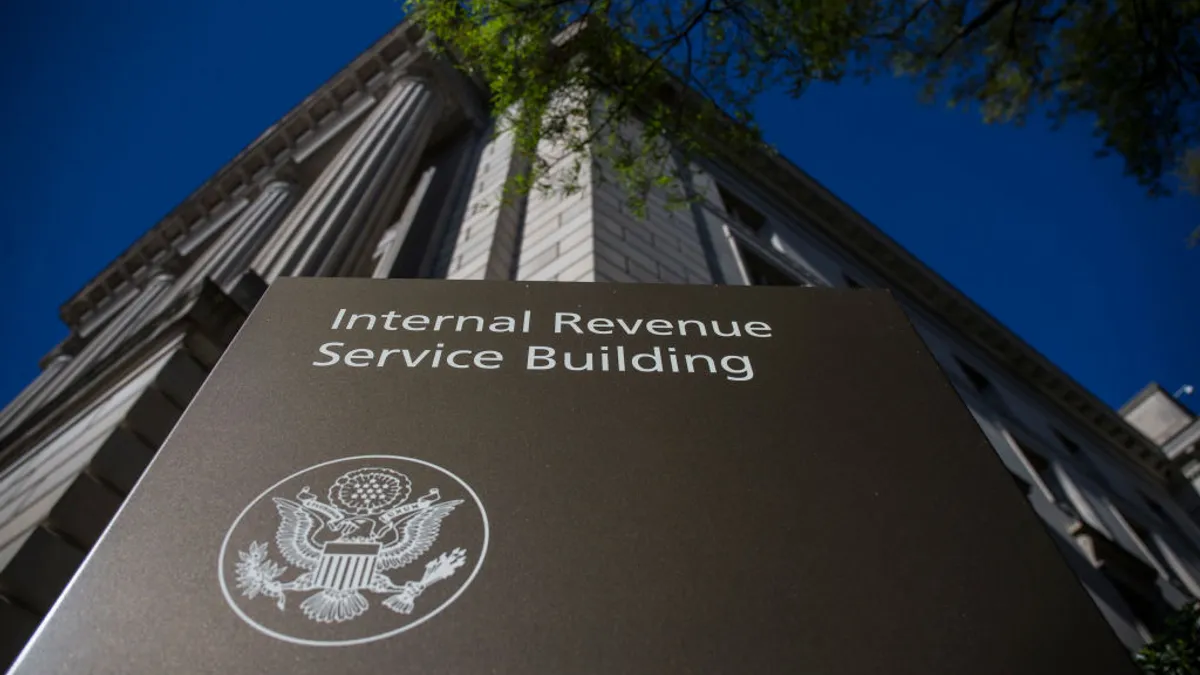The latest twist in the Trump administration’s shakeup of the Internal Revenue Service is raising new questions about the impact that layoffs and a growing leadership vacuum may have on the services it delivers to corporate and individual taxpayers.
Last week, the IRS’s acting commissioner Gary Shapley was removed after just days on the job, to be replaced by Deputy Treasury Secretary Michael Faulkender, The New York Times reported Friday. Faulkender marks the fourth leader to take the tax agency’s reins since President Trump took office in January, according to the Associated Press, with Shapley’s ouster coming amid a surge of high level officials leaving the agency, amid resignations over Trump’s policy decisions, layoffs and demotions.
The IRS and the Treasury Department did not respond to requests for confirmation of Faulkender’s new role. But Treasury Secretary Scott Bessent in a social media post on Friday suggested the change was afoot. “Trust must be brought back to the IRS, and I am fully confident that @TreasuryDepSec Michael Faulkender is the right man for the moment,” Bessent wrote in a post on X.
“There are so many holes in the elite leadership of the IRS right now, it’s very chaotic,” Larry Gray, the government liaison for the National Association of Tax Professionals, said in an interview Monday, noting that it’s hard to say what the downstream impact could be for individuals and corporate taxpayers because it’s still unclear who the leaders are and how many people will be leaving. “We don’t know who will be left on the field to play.”
In addition to losses at the top, the agency’s staff count is being slashed as part of the Department of Government Efficiency’s efforts to downsize the federal government. The IRS, which had about 100,000 employees before Trump took office, is poised to lose about one-third of its workforce this year due to resignations and layoffs, with more than 20,000 IRS employees signing up for the administration’s latest resignation offer, according to The New York Times. Many staff at the IRS are in shock, Gray said, with the gutting of management and senior level staff adding to the uncertainty.
“It’s like being in the fourth quarter of superbowl and you’re in the huddle and all of a sudden the head coach just got fired,” Gray said.
Still, Gray noted that tapping a leader from the Treasury Department could provide continuity once the permanent commissioner takes the helm. If Faulkender then moves back to the department, he would then have insight into the workings at the IRS which could be a benefit to smoother operations, Gray said. Trump’s choice for full-time commissioner is former Missouri Rep. Billy Long, who still needs to be confirmed by the GOP-led Senate.
If left unaddressed, Alex Muresianu, a senior policy analyst with the Tax Foundation, said the leadership turmoil will likely harm taxpayer service first, while he anticipates the effect on revenue collection would occur later.
“The effect might be small in the medium term if economic conditions are fairly normal and there are not many significant policy changes,” Muresianu said in an email response to questions. “But the agency may be less responsive to a crisis (for instance, the IRS was stretched very thin during the pandemic due to both the difficult general economic conditions as well as the responsibility for administering several major relief programs).”
Already, with the staff cuts during tax season, the most impacted areas have been where an employee has to review correspondence rather than processing returns, according to Misty Erickson, tax content program manager at the NATP. There have also been reports of longer wait times for anyone calling in on the phone, she said.
“With the upcoming cuts, more delays are expected in correspondence with the IRS and potential delays in IRS appeals,” Erickson said. “Human intervention would be needed in both scenarios to move the process forward.”
Separately, the NATP in February urged Congress to protect IRS information, citing concerns that the Elon Musk-led Department of Government Efficiency might be granted access to sensitive taxpayer data, CFO Dive previously reported. Erickson said the association has not yet received a response to its letter.






















